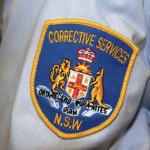WA Police Admit Bungling Major Cases

We recently wrote a blog about the case of Gene Gibson, who allegedly ‘admitted’ in a police interview to killing 21-year-old Joshua Warneke, despite not being able to understand English and not having an interpreter.
In July 2014, the Western Australian Supreme Court ruled that police had denied Mr Gibson basic human rights during the investigative process, finding that there was a ‘significant possibility’ that the admission was unreliable because Mr Gibson was unable to communicate properly.
As a result, five officers were stood down while the Crime and Corruption Commission (CCC) spearheaded a major investigation into the incident. It released a report last week detailing the mistakes made by police during the process.
The report suggests that Mr Gibson is not the only person affected by police incompetence, finding that ‘the errors of individuals [in the Gibson case] reflect a deeper malaise and systemic weakness, which permeates criminal investigations in this state.’
WA Police Minister Liza Harvey has accepted the findings, saying ‘it’s quite possible’ that other major crime investigations have also been mishandled by police.
Report Slams Major Crime Squad
The CCC investigated the way in which Mr Gibson’s case was handled by WA’s Major Crime Squad – a specialised division of the police force tasked with investigating homicides and reportable deaths.
Its report slammed the manner in which many police interviews have been conducted, finding that ‘the conduct of interviews described in this case study are an illustration of a wider issue both as to breaches of the CI Act and involuntary confessions,’ and ‘the number of cases where an EROI [electronically record of interview] is successfully challenged may be indicative of a systemic weakness in proper interviewing techniques.’
The report identified a systemic weakness in interviewing Aboriginal witnesses and suspects, despite such persons comprising 38% of the Western Australian prison population.
It found that all but one of the police officers handling Mr Gibson’s case ‘had little or no experience dealing with Aboriginals from remote communities. They had little idea of culture, customs or language variation.’ It said that no protocols were in place to provide officers with cultural awareness training.
The Commission recommended the development of ongoing cultural training to deal with Indigenous people, ‘with a particular emphasis on language and culture.’
The report uncovered that police are unfamiliar with the protocols contained in the Police Manual and Corporate Knowledge Database, and that they found them too difficult to understand and implement.
The Commission further recommended that police take special care when administering cautions to those who may not understand their right to silence due to language barriers – and that it is ‘up to WA Police to identify the best approach to improving the administration of a caution.’
Police Attempt to Blame the DPP
Police Minister Liza Harvey has responded by saying that it will be up to Police Commissioner Karl O’Callaghan to take on board the CCC’s recommendations and implement any necessary cultural training.
Since the problems with Mr Gibson’s case came to light, the WA Police Service has undertaken a restructuring of the Major Crime Squad, with a new State crime operations division established to investigate complex historical murder cases. The Squad will be given extra human resources, including criminal lawyers, to handle court matters.
But Mr O’Callaghan has sought to distance himself from the Gibson debacle, arguing that part of the blame rests with the DPP, who he says should have identified the problems with the case before it ended up in court.
WA Director of Public Prosecutions Joe McGrath has hit back , saying that it was the police, not the DPP, who were criticised in the report, and that it was up to police to take the witness stand and explain to the judge why the interview should have been admissible.
Despite his attempt to shift the blame, Mr O’Callaghan has promised to consider training specialist detectives to interview vulnerable witnesses such as Indigenous people and those with mental health problems.
But a number of officers have lost faith in Mr O’Callaghan, hinting that it may be time for him to stand down.






